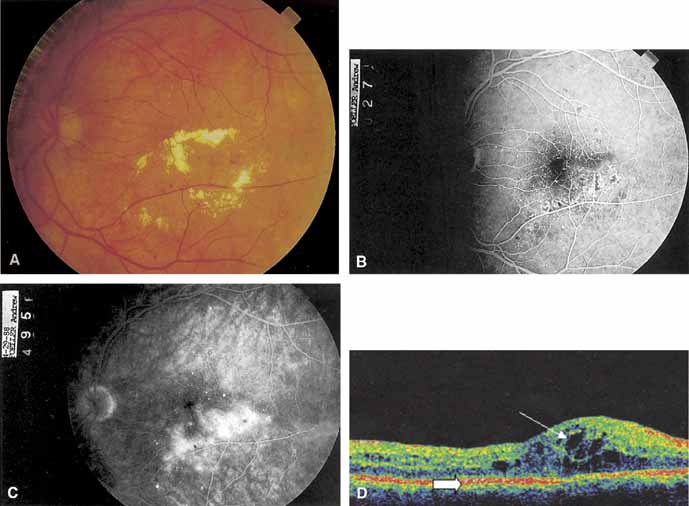
November 14th is World Diabetes Day. Starting now, we will publish many articles relevant to Diabetes to create awareness on Diabetes and its complications.

... Diabetic eye disease is
the leading cause of loss of vision in diabetic patients. Diabetes can
cause damage to the eye in four main ways,
1)Diabetic Retinopathy
2)Optic Neuropathy
3)Glaucoma
4)Cataract
Diabetic Retinopathy is the leading cause of permanent loss of vision in
diabetic patients. Vision loss can be restored by timely treatment in
some cases, but in many cases, vision loss can be partially or fully
irreversible.
What is Diabetic Retinopathy?
It is the changes in the retina of diabetic patients.
What kind of changes occurs in the
retina?
Blood vessels in the retina become weak and leaky


Small bleeds with edema(water logging) and exudates(deposits)

Formation of new blood vessels that are very weak
Bleeding into the cavity of the eye
Retinal detachment
Can anyone develop diabetic retinopathy?
Any diabetic patient even if diabetes is well controlled
Risk increases with duration of diabetes
Greater risks are in young insulin dependent diabetics, poorly
controlled diabetics, pregnant diabetics (gestational diabetics)
What are the symptoms of diabetic retinopathy?
Can remain asymptomatic even till late stages.
Common symptoms are blurring of vision, floaters and sudden loss of
vision
Advanced diabetic retinopathy can lead to secondary glaucoma causing
painful visual loss.
How often should a diabetic patient have
eye check ups?
Once diabetes has been diagnosed yearly checkups is a must.
If diabetic changes on the retina starts occuring , checkups should be
as per the ophthalmologists advice.
What tests would be performed for a diabetic
patient?
Apart from checking vision and testing glasses, a detailed examination
of the retina is performed after dilatation of the pupil.
Fundus fluoroscien angiography may be required for some patients in
which a dye is injected into the arm vein followed by taking a series of
photographs of the retina.
What are the different treatments
available for diabetic retinopathy?
Laser photocoagulation: This is a economical option as the cost of treatment does not exceed 40K for both eyes. Laser treatment helps in maintaining existing vision and does not help in recovering lost vision. Hence it is useful in treatment of Diabetic retinopathy before complications occur.
Surgery in advanced stage where removal of clotted blood inside the eye or repair of a detached retina becomes necessary. 
Laser treatment is done in an attempt to prevent further loss and
preserve existing vision. It is successful in over 50% of the patients
if adequate control of blood sugar along with regular follow up is
maintained.
Does laser treatment prevent further
visual loss?
No. Regular follow up examinations as per the ophthalmologists advice is
needed.
Further laser therapy or surgery may be needed at later stages.
Is laser treatment a complicated procedure?
No, it is a simple ,painless, outpatient procedure,
There are no restrictions after the procedure
What is diabetics role in the prevention
of Diabetic Retinopathy?
Keep diabetes under good control
Have periodic eye checkups
Take prompt treatment as advised by the ophthalmologist.
Facilities utilized to diagnose and
treat diabetic retinopathy:
HeineDirect and indirect ophthalmoscopes for detailed retinal
evaluation]
532laser with slit lamp and indirect delivery system for laser
photocoagulation
Digital fundus camera with imaging software for instant retreival for
fluoroscien angiography and fundus photography
Operating microscope and state of the art vitreoretinal
microsurgical system and equipment for vitreous surgery
Highly qualified retinal surgeon to perform laser treatment and vitreo
retinal surgeries
What is optic neuropathy?
It is a condition of the optic nerve (the main nerve that takes light
from the eye and delivers to the brain) where the blood supply to the
nerve is reduced either suddenly or gradually causing irreversible loss
of vision.
Can optic neuropathy be prevented?
In most patients, good control of blood sugar and regular followup for
early detection of nerve damage can help in salvaging useful vision.
What is Glaucoma?
It is a condition where the pressure inside the eye become excessive and
causes damage to the optic nerve.
Can Glaucoma be prevented?
Regular check of the Intraocular pressure and assessment of the optic
nerve status along with a complete eye examination can help in the early
detection of glaucoma even before the damage becomes permanent.
However once vision is lost , it is lost for ever and cannot be
recovered. Hence regular checkup is extremely important.
What is cataract?
It is a condition where the natural lens of the eye becomes clouded and
obtructs light causing haziness of vision. In Diabetes the condition
tends to occur around 10years earlier.
Can my vision which is lost to cataract
be recovered?
Yes, Vision lost solely due to cataract can be completely recovered by
Advanced techniques of cataract surgery (phakoemulsification) and
Intraocular lens Implantation.
For More Information Contact:
Sri Venkateshwara Nethralaya
Kengeri: 91-80-28487484, 28488484
RajaRajeshwari Nagar: 91-80-28603343, 28601143, 28607713
Ramanagara: 91-80-27274773, 27274776